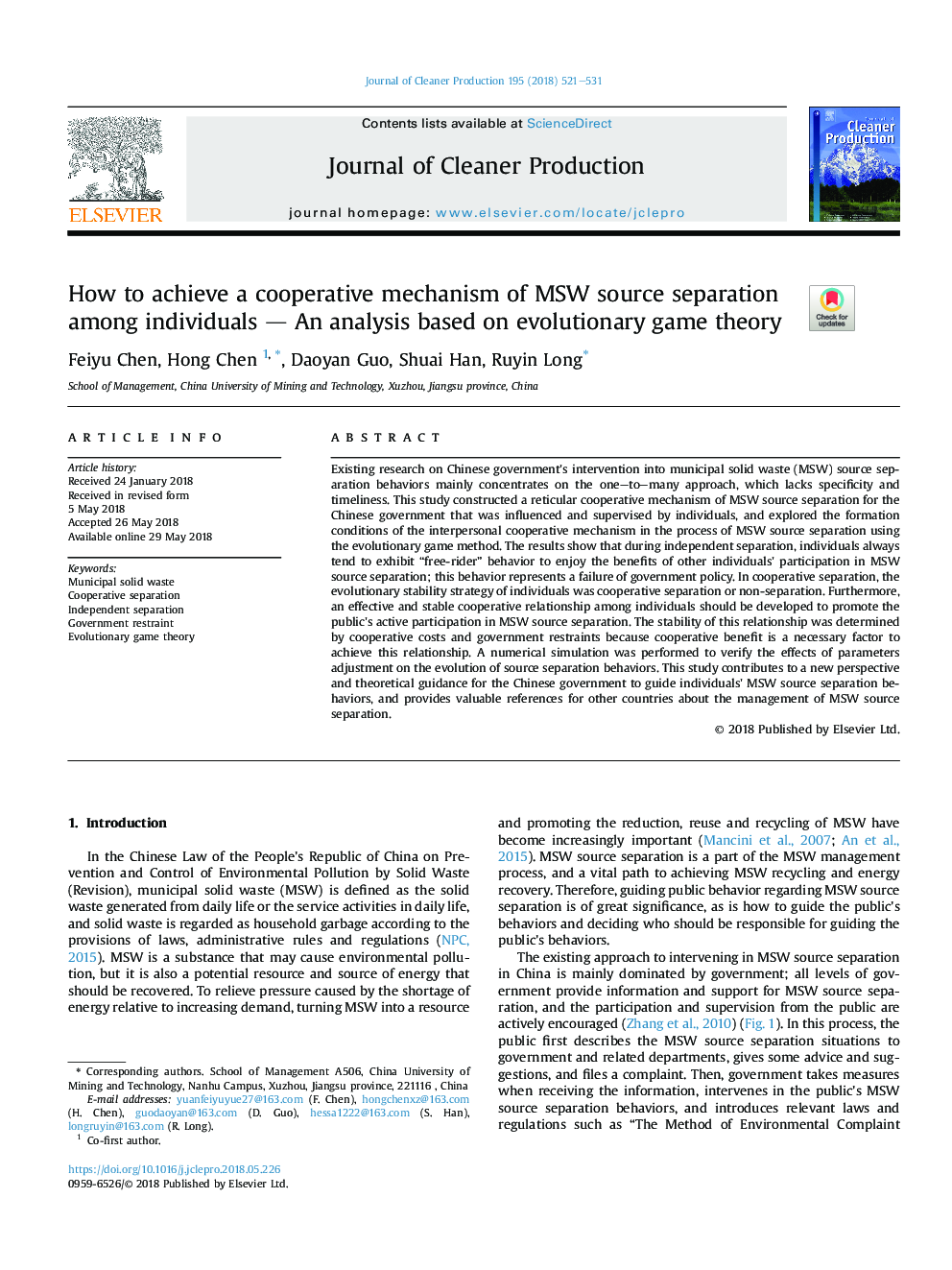| Article ID | Journal | Published Year | Pages | File Type |
|---|---|---|---|---|
| 8094105 | Journal of Cleaner Production | 2018 | 11 Pages |
Abstract
Existing research on Chinese government's intervention into municipal solid waste (MSW) source separation behaviors mainly concentrates on the one-to-many approach, which lacks specificity and timeliness. This study constructed a reticular cooperative mechanism of MSW source separation for the Chinese government that was influenced and supervised by individuals, and explored the formation conditions of the interpersonal cooperative mechanism in the process of MSW source separation using the evolutionary game method. The results show that during independent separation, individuals always tend to exhibit “free-rider” behavior to enjoy the benefits of other individuals' participation in MSW source separation; this behavior represents a failure of government policy. In cooperative separation, the evolutionary stability strategy of individuals was cooperative separation or non-separation. Furthermore, an effective and stable cooperative relationship among individuals should be developed to promote the public's active participation in MSW source separation. The stability of this relationship was determined by cooperative costs and government restraints because cooperative benefit is a necessary factor to achieve this relationship. A numerical simulation was performed to verify the effects of parameters adjustment on the evolution of source separation behaviors. This study contributes to a new perspective and theoretical guidance for the Chinese government to guide individuals' MSW source separation behaviors, and provides valuable references for other countries about the management of MSW source separation.
Related Topics
Physical Sciences and Engineering
Energy
Renewable Energy, Sustainability and the Environment
Authors
Feiyu Chen, Hong Chen, Daoyan Guo, Shuai Han, Ruyin Long,
